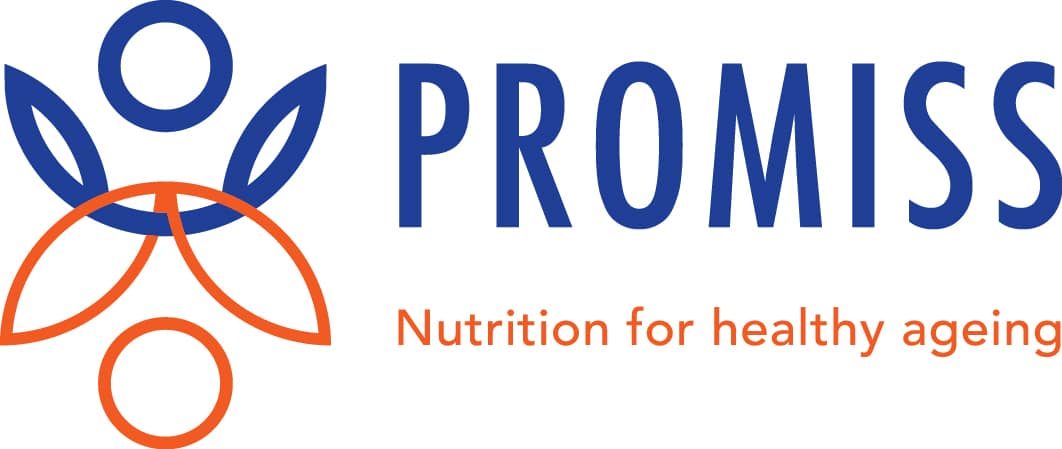> Theme: Malnutrition
> Timeline: April 2016 – July 2021
> Key Words: malnutrition, healthy ageing, recommendations
PROMISS – PRevention Of Malnutrition In Senior Subjects in the EU – worked on understanding relationships between food, physical activity, biological changes among older persons and developed dietary and physical activity strategies and new food concepts and products with a special focus on protein malnutrition.
Results
Based on the research conducted in the project, recommendations were developed to support older people to prevent protein malnutrition. The recommendations are available in English, French, Italian, German, Spanish, Dutch, Czech, Danish, Finnish, Greek, Hungarian, Polish, and Romanian.
They cover key issues related to preventing protein malnutrition:
- Why is protein important?
- How much protein do we need?
- How can you find out if you need more protein?
- How can you increase the amount of protein you eat?
- Sustainable protein
- Exercise and examples of training
To help people eat more protein, a table containing information on what food contains how much protein was also developed and is available in English, French, Italian, German, Spanish, Dutch, Czech, Danish, Finnish, Greek, Hungarian, Polish, and Romanian.
The project has also developed recommendations for health care professionals, dietitians, food industry, and policy makers.
AGE involvement
AGE drafted the recommendations based on the project findings and coordinated the dissemination efforts to share the project’s outcomes, in particular among older persons and policy-makers.
Contact









